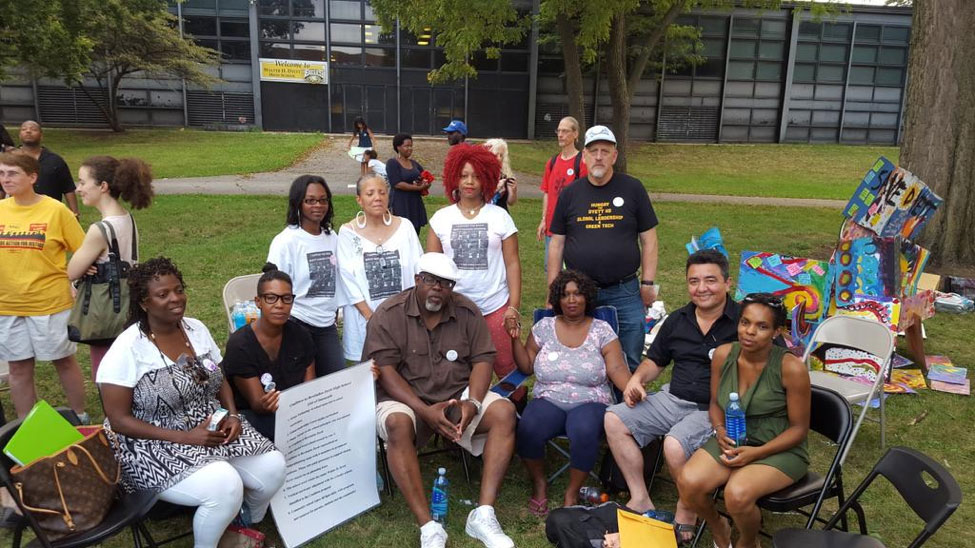Blog
Hunger Strikers Bring National Attention to Dyett High School

Walter H. Dyett High School is the last public, open enrollment high school in its historic Chicago Black neighborhood, and its community, led by education organizers and advocates, are rallying to save it. After the high school was closed due to low enrollment and performance, the community came up with a carefully designed plan to turn Dyett into a Global Leadership and Green Technology high school that would continue to serve both its students and its neighborhood. However, Chicago Mayor Rahm Emanuel and his appointees at Chicago Public Schools have thus far refused to agree to this community-driven plan. Now activists are in the fourth week of a hunger strike, attempting to save their school.
Last week, two of the hunger strikers, including National Director of the Journey for Justice Alliance Jitu Brown, took their fight to Secretary of Education Arne Duncan in Washington D.C. They hosted a press conference with national education leaders to highlight the need for neighborhood schools that are accountable to local communities and provide the full range of supports that students need to succeed. The Schott Foundation‘s CEO, John Jackson, also spoke at the event, emphasizing their shared belief that “across the country, students should have a fair opportunity to learn.” You can watch the press conference here:
On September 3rd Chicago Public Schools finally responded to the calls to make a decision on the fate of Dyett. There were three options submitted to the district, but CPS bypassed their established process and decided — with zero community input — to discard those options, instead insisting on an arts-centric high school. The twelve hunger strikers said they would therefore continue the hunger strike. Educators, parents, students, and other education advocates are speaking out across social media to support their fight, using #FightForDyett, #WeAreDyett, and #SaveDyett. The fight for Dyett has brought new recognition of the problem of school closures and takeovers, which disproportionately hurt communities of color. Watch a video to hear the twelve hunger strikers explain the situation in their own words:


